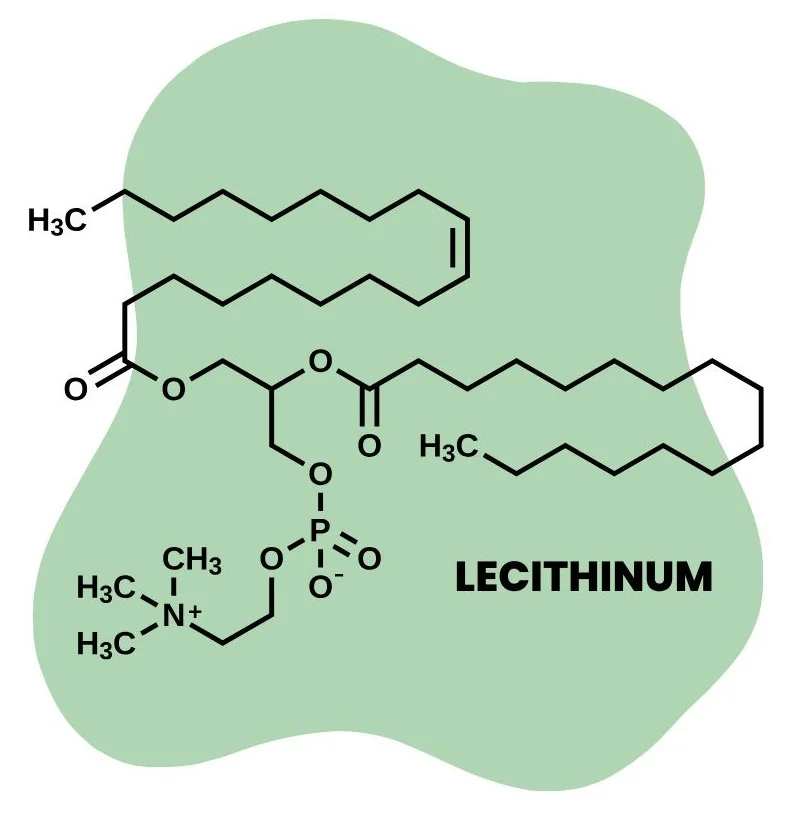Lecithinum, commonly referred to as Lecithin, is a complex organic compound primarily derived from egg yolks and animal brains.
This substance plays a crucial role in the biological processes of both plants and animals.
It is well-regarded in homeopathy for its positive influence on nutrition, particularly in conditions such as anemia, neurasthenia, and insomnia.
Lecithin is known to enhance the quality of blood by increasing the number of red blood cells and the hemoglobin concentration, making it beneficial during convalescence.

Table of Contents
ToggleSOURCE INFORMATION
Scientific Classification
- Common Name: Lecithin
- Origin: Prepared from the yolk of eggs and animal brains, it is rich in phospholipids, particularly phosphatidylcholine.
- Chemical Structure: A phospholipid containing phosphorus, fatty acids, and glycerol.
Historical Facts
- Lecithin has been utilized since ancient times for its nutritional benefits.
- It was first isolated from egg yolk in the 19th century.
- In traditional medicine, Lecithin was recognized for its health benefits, particularly in improving nutrient absorption and supporting liver function.
DRUG PATHOGENESIS
- Lecithin is thought to act on multiple bodily systems, including the circulatory, nervous, and reproductive systems.
- It aids in improving overall nutrition, stimulating red blood cell production, and supporting brain function.
- The remedy is particularly indicated for individuals experiencing mental fatigue, physical weakness, and nutritional deficiencies, especially following illness or chronic conditions.
DIATHESIS
- Primarily indicated for individuals suffering from anemia and other nutritional deficiencies, leading to weakness and mental fog.
WHAT IS DIATHESIS IN HOMOEOPATHY?
TEMPERAMENTS
- Often helpful for melancholic and anxious individuals who experience mental fatigue and lack of motivation.
WHAT ARE TEMPERAMENTS IN HOMOEOPATHY?
KEY CHARACTERISTICS
- Nutritional Support: Enhances the nutritional status of individuals recovering from illness or dealing with chronic fatigue.
- Mental Symptoms: Associated with forgetfulness, confusion, and dullness of mind, often leading to decreased mental performance.
- Physical Weakness: Characterized by tiredness, lack of energy, and a general sense of physical debility.
ORGAN SYMPTOMS
MIND SYMPTOMS
- Forgetfulness and Dullness: Patients may experience difficulty concentrating, with a tendency to forget recent events or tasks.
- Confusion: Mental confusion is common, often leading to anxiety and frustration.
HEAD SYMPTOMS
- Occipital Headaches: Patients frequently report pulsating headaches, especially in the occipital region, accompanied by a ringing sensation in the ears.
- Facial Pallor: The face may appear pale, indicating possible circulatory issues.
STOMACH SYMPTOMS
- Loss of Appetite: Individuals may experience a reduced desire to eat, accompanied by thirst and cravings for stimulants like wine and coffee.
- Bloating: A feeling of fullness and soreness in the stomach that can rise toward the throat.
URINARY SYMPTOMS
- Scanty Urine: The urine may be scanty and contain phosphates, sugar, or albumin, indicating potential issues with kidney function or metabolic disorders.
SEXUAL SYMPTOMS
- Decreased Male Potency: Lecithin is indicated for sexual weakness, anaphrodisia (loss of sexual desire), and ovarian insufficiency in females.
EXTREMITY SYMPTOMS
- Aching and Soreness: Patients may report a lack of energy and persistent soreness in the limbs, contributing to feelings of fatigue.
MODALITIES
- Worse: Symptoms may worsen with mental exertion, emotional stress, or after prolonged periods of inactivity.
- Better: Patients often feel better with rest, a nutritious diet, and when engaged in mild physical activity.
WHAT ARE MODALITIES IN HOMOEOPATHY?
RELATIONSHIP WITH OTHER DRUGS
Compare,
- Phosphorus (Phosphor): Known for its effects on nutrition and vitality, often used alongside Lecithin in cases of weakness and nutritional deficiency.
DOSE
- Preparation: Lecithin can be administered in crude form or in potencies ranging from twelfth potency upwards.
- Administration: Typically dosed between one-half to 2 grains of crude Lecithin, or the equivalent in potency.
Frequently Asked Questions (FAQs)
What conditions can Lecithinum treat?
- Lecithinum is effective for nutritional deficiencies, particularly anemia, mental fatigue, and conditions related to weakened sexual function.
How does Lecithinum work?
- It supports nutritional absorption, increases red blood cell production, and enhances overall vitality by improving blood quality.
Who should take Lecithinum?
- Individuals suffering from fatigue, poor nutrition, anemia, or those experiencing mental fog may benefit from this remedy.
How should Lecithinum be administered?
- Dosage should be personalized based on individual health needs and the severity of symptoms, ideally under the guidance of a homeopathic practitioner.
Glossary of Difficult Words
- Anaemia: A condition characterized by a deficiency of red blood cells or haemoglobin in the blood, leading to fatigue and weakness.
- Neurasthenia: A condition marked by physical and mental exhaustion, often associated with stress or overwork.
- Anaphrodisia: A decreased sexual desire or libido.
- Phosphates: Salts or esters of phosphoric acid, often found in biological systems, contributing to various physiological functions.
- Pallor: An unhealthy pale appearance, often indicating illness or stress.
Lecithinum serves as a vital remedy in homeopathy, particularly for addressing nutritional deficiencies and their associated symptoms.
Its role in enhancing mental clarity, physical vitality, and overall well-being underscores the importance of nutrition in health management.
Always seek professional guidance when considering homeopathic remedies to ensure they align with your specific health needs.
